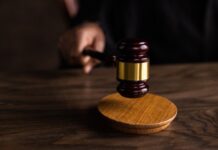
See Part 1, for William Wortley’s analysis of the High Court’s judgment here
Johnny Depp may have been forgiven for thinking his time playing Sweeney Todd would be his most gruesome experience on Fleet Street in central London, the location of Todd’s infamous Victorian barber shop. Little did Depp know that 13 years following the release of that widely acclaimed film, he would endure his own harrowing experience just a few doors up from Todd’s barber shop at London’s Royal Courts of Justice.
Depp’s libel trial was probably one of the most high profile London has seen in recent times. Whilst the court transcript may read like a Hollywood movie plot, there was no happy ending this time for Mr Depp.
Nicol J’s judgment, handed down on 2 November 2020, is as long as it is damaging for Depp, finding based on a plethora of evidence heard from an international cast of witnesses, that the story published by the Sun which labelled Depp as, amongst other things, a “wife beater”, was substantially true. As a result, NGN were entitled to rely on the defence of Truth contained in section 2 of the Defamation Act 2013 and Depp’s libel claim failed.
It is noteworthy that the judgment does not make any landmark changes to English defamation law. However, it does remind us of some of the inherent dangers that can be associated with bringing a libel claim. Here we take a look at some practical considerations arising out of this case to be borne in mind when seeking to conduct reputation management via defamation proceedings:
- Remember who you’re fighting
A casual observer of the news reports coming out of the trial in July would have been forgiven for thinking this was a claim between Depp and his ex-wife Amber Heard, when it was actually Depp v News Group Newspapers.
The articles and headlines complained of by Depp were published in the Sun by NGN, not by Depp’s ex-wife Amber Heard. Heard’s role was as NGN’s principal factual witness, on whose witness evidence the newspaper relied heavily when attempting to prove that the statements made in their articles – which were found by the Judge to carry the meaning that Depp was violent towards Heard – were substantially true. Without Heard’s assistance, NGN would have been confronted with a much more difficult task proving that the words published were true.
Throughout the trial the spotlight shone on Depp and Heard’s relationship, with damaging factual details of the breakdown of their relationship released into the public domain, ironically achieving little other than further damaging the reputations of both protagonists via proceedings intended to achieve the opposite.
Heard became a distraction for Depp and his legal team, with Depp frustrated that Heard had not had to provide disclosure as part of the legal proceedings, even though she was effectively his opponent. Depp’s frustration was likely that potentially relevant information in Heard’s possession, that she did not give to NGN, could not be obtained and considered at trial. Depp, meanwhile, in accordance with English procedural rules on disclosure, was required to disclose any documents which would either support or adversely affect his claim.
However, Heard was not required to provide disclosure because she was not a party to the proceedings. Nicol J points out in his judgment that there are circumstances in which a third party to a claim, such as Heard, can be required to provide disclosure and that Depp failed in his application to the Court for such disclosure to be provided. The Judge also commented that Depp had not been short of legal advice, and therefore was likely to be well informed about the consequences of his choice of Defendants and had always retained the option of adding Heard to the claim as a Defendant but did not do so.
This carries an important warning for claimants seeking to protect themselves against allegations contained in a publication which are principally based on, or can be corroborated by, the account of a third party. Careful consideration ought to be given to the willingness of the third party to support a Defendant publication and whether the third party is an appropriate co-defendant to the claim. Such decisions made at the very outset of proceedings can have a significant effect on how a defamation claim is acted out, as they did in this case.
- How much of it needs to be true?
There was relatively little dispute between the parties as to whether the core foundations of a libel claim were present here. The most significant elements of the natural and ordinary meaning of the words were also largely agreed by the parties. Once the Judge had decided upon the minor remaining disputes as to meaning, it was established that the Defendants were required to prove that it was substantially true that Depp was violent towards Heard.
In Depp’s script, this was the part where England’s ‘claimant friendly’ libel laws would perform to his benefit, as the burden of proof shifted to the Defendants to prove what they published was substantially true.
To prove truth, the Defendants provided details of 14 incidents where Depp was said to have been violent towards Heard, as well as an additional confidential example. Nicol J, having reviewed each of the incidents found that 12 of the 14 were proved to the civil standard of the balance of probabilities, with the Judge taking care to make clear he had accounted for the higher standard of evidence necessary to satisfy that threshold in circumstances where the allegations made are serious. The Judge further found that the additional confidential example was not proven to the standard required.
Despite the Defendants failing to prove that 3 of the 15 incidents put forward were true, Nicol J was satisfied that:
“the great majority of alleged assaults of Ms Heard by Mr Depp have been proved… the exceptions are Incidents 6, 11 and the additional confidential allegation regarding Hicksville. I do not regard the Defendants’ inability to make good these allegations as of importance in determining whether they have established the substantial truth of the words that they published in the meanings which I have held those words to bear”.
This demonstrates some of the danger for a claimant of becoming embroiled in a contested libel action and seeing it through to trial. It was in the Defendants’ interests here to put forward as many incidents as possible in an attempt to prove that the words published were substantially true, knowing that they would not necessarily have to get home on all of them in order to succeed in relying on the defence of Truth. Given the High Court’s overall findings, it will be of scant consolation to Depp that 3 of the incidents were found not to have been made out to the necessary standard.
- Not as appealing as it seems
In the aftermath of the judgment, Depp (via his legal team) has released a statement describing surprise at the findings of the High Court and indicating that Depp intends to take the case to the Court of Appeal.
However, this will not be as simple as the statement released by Depp implies. Nicol J’s judgment is rooted in findings of fact against Depp. Indeed, the length of the judgment is predominantly attributable to the painstaking detail by which Nicol J goes through the 14 factual allegations raised by the Defendants to demonstrate that the words they published were substantially true.
The ability to appeal a judgment of the English court is not one of right for the losing party; the permission of the Court is required. Appeals are best launched in circumstances where one party considers that the judge has erred on a matter of law.
It is not impossible to appeal factual findings of a trial judge, as Depp would need to do here, but it is rare. The Court of Appeal will be reluctant to overrule a trial judge who has had the benefit of hearing the witness evidence first hand and has formed a view based on what they have heard from the witnesses, as well as the demeanour of the witnesses when giving evidence, something that the Court of Appeal will not have the benefit of during any appeal hearing.
With further proceedings upcoming in the US between Depp and Heard, any such appeal may be driven by strategic reasons, so that when this judgment is inevitably brought to the attention of the US court by Heard, Depp can refer to it as ‘under appeal’ in an attempt to play down the English court’s findings. However, the prevailing view on this side of the Atlantic is that any such appeal would be a difficult second act, facing an uphill task to overturn the findings of the High Court.
- Barbra Streisand lives on
For those that do not know, the Streisand principle neatly refers to a situation where, in trying to cover up an unwanted or damaging story, the actions taken by the person affected obtain more publicity than the original issue they were complaining of. The name is in reference to Streisand’s attempts in 2003 to suppress photographs taken of her, the result of which was the creation of a meme using the photographs.
Depp’s case provides a timely reminder that pursuing a libel claim retains the potential to make things worse as well as better. As the internet age provides a permanency to newspaper articles that did not exist previously, more and more claimants like Depp will face the dilemma of whether the price of a showpiece trial is worth the prize of having allegations taken down or corrected.
In the end, it’s likely that Depp’s decision to pursue this claim will be reflected on as an own goal. In seeking to vindicate himself of damaging allegations, Depp has achieved the opposite, causing further damage to his reputation which may have a significant impact on his future opportunities. Suffice to say, this is probably not be the curtain call Depp had imagined.










Thank you. Without commenting on this particular case, what would have been the nature of the legal advice given to Depp be for not adding Heard as a party, which would have given him the benefit of her having to make disclosure?